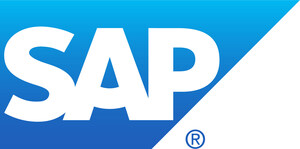WALLDORF, Germany, March 29, 2016 /PRNewswire/ -- One in five shoppers in the United States regularly buys groceries online, and two in five have bought groceries online in the past, a recent survey shows. The findings of the study, commissioned by Brick Meet Click and announced by SAP SE (NYSE: SAP), show that retailers face enormous pressure to adjust internal and customer-facing business strategies to keep pace with rapidly evolving consumer demands.
"The tide is rising," said Bill Bishop, chief architect of Brick Meets Click and primary author of the new study. "Active users spend an average of 16 percent of their weekly grocery dollars online, and that grows to 64 percent on weeks they do a major online grocery trip."
Other key findings of the survey include:
- The percentage of U.S. households that bought groceries online in the past 30 days has nearly doubled in just two years: 21 percent in 2015 versus 11 percent in 2013.
- Online grocery trips are different from in-store shopping. Three themes dominate online grocery shopping:
- Specific product shopping
- Major grocery shopping
- Subscription-based shopping
"A digital core is the foundation of a retailer's digital value network," said Lori Mitchell-Keller, global general manager of consumer industries for SAP. "Retailers that operate a true digital enterprise can empower the workforce and deliver a better user experience that goes beyond a mobile smartphone or tablet. They can respond to shoppers in real time -- with a 360-degree view of the customer."
To learn more about the results of "How Consumers Are Using Online Grocery and What It Means for Retailers in 2016," based on responses from 12,000 U.S. shoppers, click here.
For more information, visit the SAP News Center. Follow SAP on Twitter at @sapnews and @SAP_Retail.
Media Contact:
Stacy Ries, SAP, +1 (484) 619-0411, [email protected], ET
Any statements contained in this document that are not historical facts are forward-looking statements as defined in the U.S. Private Securities Litigation Reform Act of 1995. Words such as "anticipate," "believe," "estimate," "expect," "forecast," "intend," "may," "plan," "project," "predict," "should" and "will" and similar expressions as they relate to SAP are intended to identify such forward-looking statements. SAP undertakes no obligation to publicly update or revise any forward-looking statements. All forward-looking statements are subject to various risks and uncertainties that could cause actual results to differ materially from expectations. The factors that could affect SAP's future financial results are discussed more fully in SAP's filings with the U.S. Securities and Exchange Commission ("SEC"), including SAP's most recent Annual Report on Form 20-F filed with the SEC. Readers are cautioned not to place undue reliance on these forward-looking statements, which speak only as of their dates.
Logo - http://photos.prnewswire.com/prnh/20110126/AQ34470LOGO
SOURCE SAP SE
Related Links
WANT YOUR COMPANY'S NEWS FEATURED ON PRNEWSWIRE.COM?
Newsrooms &
Influencers
Digital Media
Outlets
Journalists
Opted In




Share this article